Experts Convene in Abuja to Tackle Clean Energy, Land Degradation, and Biodiversity Loss in Nigeria
Posted on Friday 31 May 2024
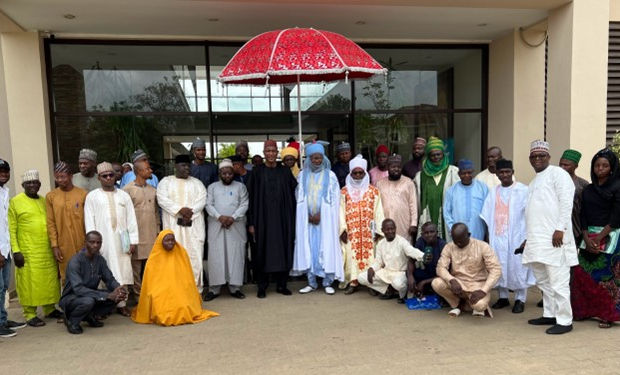
A workshop titled “Improving Access to Clean and Modern Energy for Cooking while Reducing Land Degradation and Biodiversity Loss in Nigeria,” was held in the Federal Capital Territory (FCT), Abuja, Nigeria, on April 29, 2024, involving researchers from the University of York, UCL and Bayero University Kano.
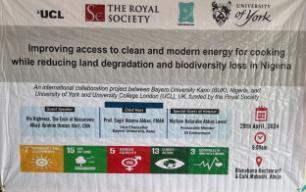
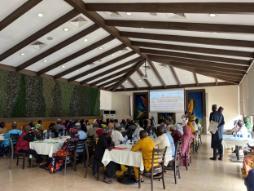
Funded by the Royal Society, the interactive and final event of the research project with the same title as the event gathered key stakeholders and notable figures to address pressing environmental challenges linked to deforestation and forest degradation and the energy transition. Notable attendees include HRH the Emir of Nasarawa, the Vice Chancellor of Bayero University Kano (BUK), and the Director of the Centre for Dryland Agriculture (CDA). Also in attendance were representatives of the Federal Ministry of Environment and community members from the respected study states (Nasarawa, Kaduna, and FCT, Abuja). Findings from the three year study were discussed with the community members at the event. An estimated 94.4% of households in the surveyed study sites rely on fuelwood and charcoal for cooking. This dependence has resulted in serious deforestation, land degradation, and greenhouse gas emissions. Shockingly, the study highlighted that over the past two decades, an estimated 17,400 km2 of forest has been lost – an area five times the size of Lagos State in Nigeria.
Underscoring the importance of involving local communities in finding solutions to these pressing issues, Professor Aliyu Barau, one of the lead researchers from Bayero University Kano, emphasised the high cost of neglecting community involvement for Nigeria's ecological integrity and well-being. His Royal Highness, the Emir of Nasarawa, showcased initiatives from his community, where farm waste such as sawdust, cassava peel, and rice husk are transformed into fuel briquettes, offering a sustainable alternative to charcoal. Additionally, he demonstrated the conversion of organic waste like cow dung and poultry droppings into biogas and biofertilizer, effectively reducing methane emissions while providing alternative energy sources. These are efforts that were well-received and adopted by local communities.
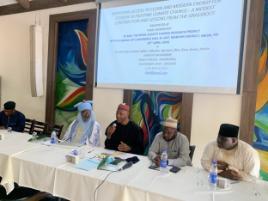
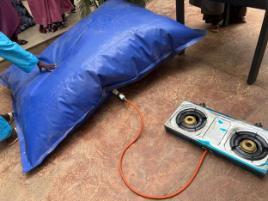
The study revealed that around 95% of questionnaire respondents expressed interest in embracing alternative cooking energy sources if they were made available. However, there remains a crucial need for policymakers, researchers, and community members to collaborate more closely to implement actionable strategies that mitigate unsustainable practices in Nigeria Furthermore, during the workshop emphasis was placed on the urgent need for campaigns that raise awareness about the importance of adopting clean energy and conserving the environment. Discussions also underscored the necessity of providing locally sourced, sustainable and affordable alternative cooking energy sources to alleviate the pressure on forests and highlighted the critical importance of collaboration to foster innovative solutions and collectively address environmental challenges.
At the conclusion of the workshop there was a significant focus on the need for continued partnerships and committed endeavours to implement tangible programmes that safeguard Nigeria's forests, support its clean energy transition and promote environmental sustainability. The workshop's vital knowledge will feed crucial activities and shape policies aimed at creating a sustainable and resilient future for everybody.
Written by:
Stella Nwawulu Chiemela, PhD researcher, Interdisciplinary Global Development Centre, University of York
Abba Ngurno, PhD researcher, Department of Environment and Geography, University of York
